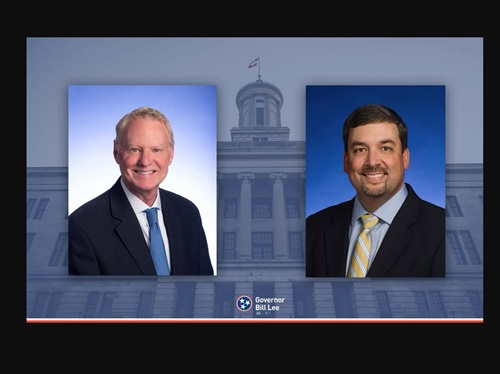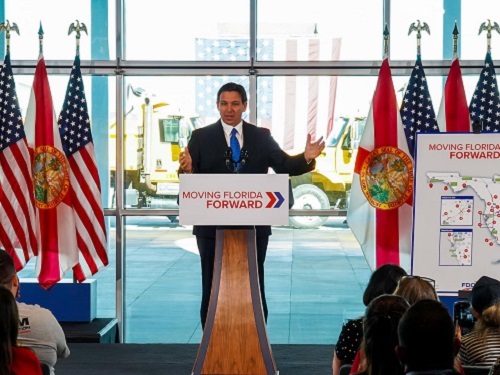Florida Governor Ron DeSantis (R) (above) recently proposed that the state legislature invest a total of $7 billion over the next four years in the state’s transportation infrastructure.
[Above photo by the Florida Governor’s Office]
Overseen by the Florida Department of Transportation, the governor’s “Moving Florida Forward” proposal would invest $4 billion of general revenue, redirect an average of $131 million annually to the State Transportation Work Program, and leverage additional funding over the next four years to pump $7 billion into the state’s roadway network.

Florida DOT noted that funding would expedite 20 priority infrastructure projects into the existing Work Program to combat traffic congestion, improve safety, and ensure a more resilient transportation system to bolster current transportation needs and set the stage for future growth.
“This proposal will break through bureaucracy that often slows down infrastructure projects and allow Florida DOT to target projects that will ease congestion across the state,” Gov. DeSantis said in a statement. “Expediting these projects will bring them to completion more than a decade ahead of schedule.”

“This proposal is truly historic and the projects included will help relieve congestion while also focusing on safety, resiliency, the supply chain, and economic growth,” added Florida DOT Secretary Jared W. Perdue.
“These are important for Floridians’ quality of life and to ensure we maintain a strong transportation system to keep Florida moving forward,” he said
Perdue also touched on several of those issues during a presentation at the American Association of State Highway and Transportation Officials 2022 Annual Meeting in Orlando, noting that while Florida’s infrastructure models are all planned on 2 percent to 3 percent population growth rate, the state is now experiencing population growth in excess of 20 percent, with some clusters of counties experiencing 40 percent growth.
“People are now suddenly waking up literally overnight to maddening levels of traffic – with a 30-minute commute expanding to an hour and a half,” he said. “So how we meet such transportation needs and doing it faster is definitely a big challenge. But we need to answer that call.”
 States
States


